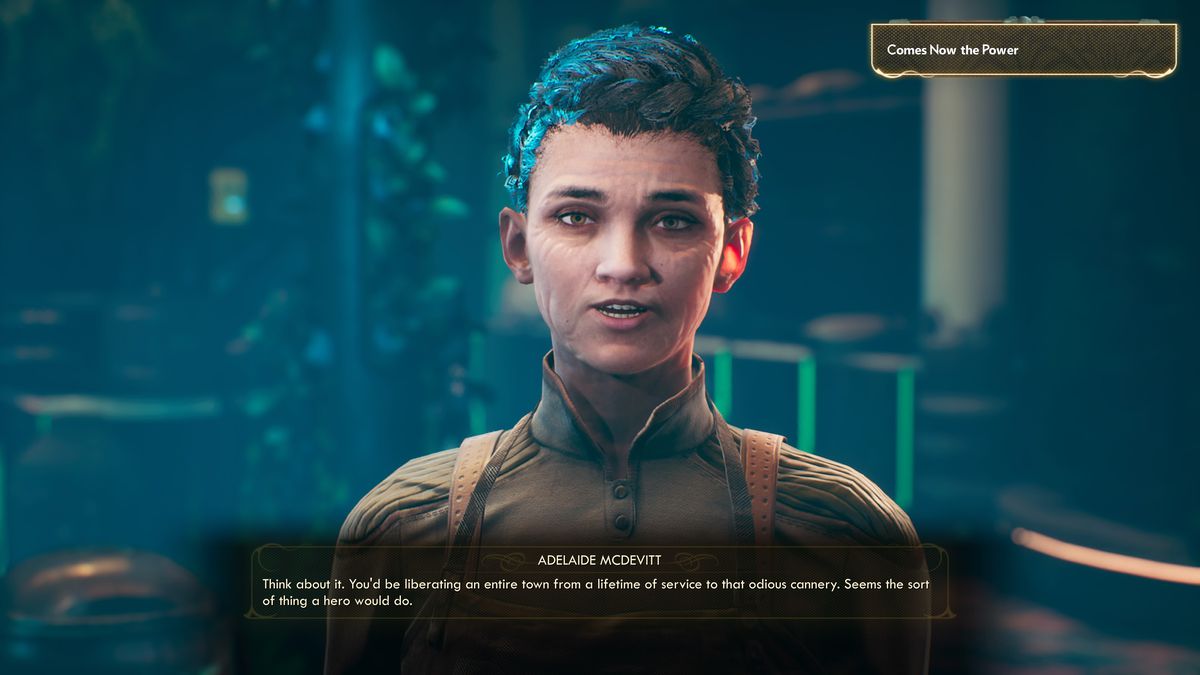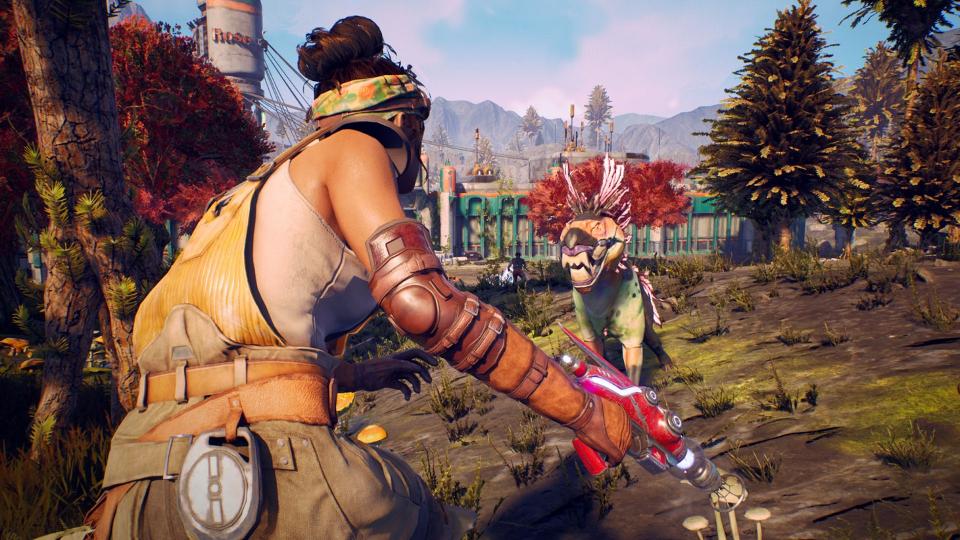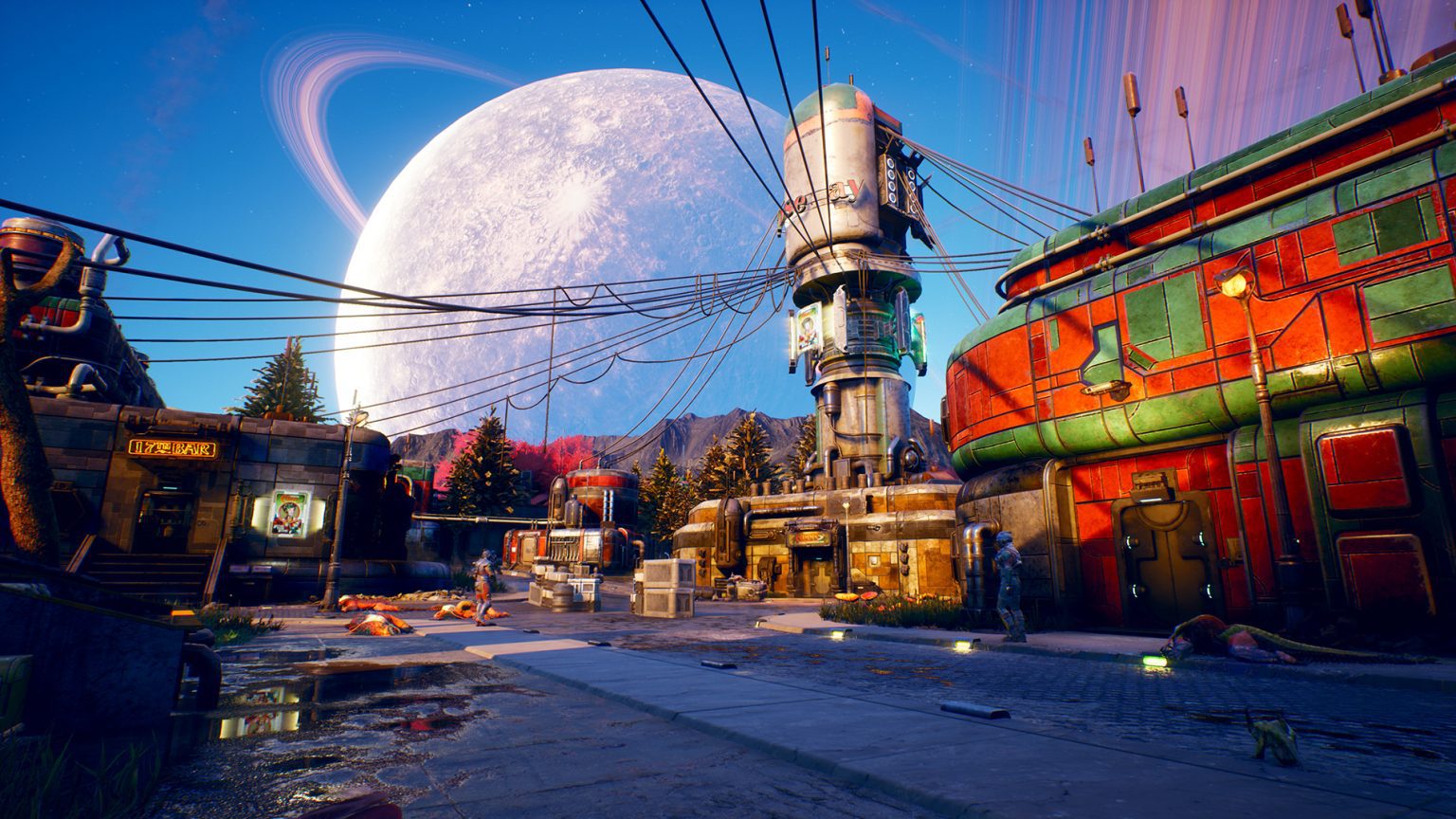Asking Tough Questions with Even Tougher Answers
The best quests in Obsidian’s latest interplanetary effort The Outer Worlds aren’t necessarily centered on gunning down alien monsters, looting abandoned buildings, or invading marauder-laden outposts. On the contrary, the best missions in The Outer Worlds involve forcing the player to confront their own political views and reconsider even their most closely-held personal values.
Human Cost and the Art of Compromise
Though The Outer Worlds doesn’t exactly have the most nuanced storyline or world (the anticapitalist themes and language appear ham-fisted, though deliberately so for satirical and comedic effect), the game occasionally demonstrates the ability to compel the player to commit to actions that, in theory, may conflict with how they might feel about issues in the real world. Video games give us the opportunity to take hold of another being, allowing us to roleplay in any way we like, but I often find myself making decisions in RPGs that reflect how I feel about real-life matters. I didn’t blow up Megaton in Fallout 3, because I am against nuclear warfare and the harming of innocents under any circumstances. I stayed faithful to Yennefer in The Witcher 3, as I felt I would do the same (assuming I ever had amnesia). I saved Del in Gears 5, because he fought by my side 100% of the way, and I value that kind of loyalty.
But whenever I’ve been offered the choice to either save a corporate town or socialist commune in the latest Obsidian game, I do whatever I can to reach a compromise — even though in real life, I advocate for large teardowns of capitalist systems in favor of leftist political takeover, even if it comes at a cost. Part of this willingness to meet in the middle comes from how The Outer Worlds forces the player into life-or-death scenarios, in which the community you opt not to save crumbles down, taking largely innocent, powerless workers with it. While complex situations as these are by no means new to gaming, The Outer Worlds poses them with the intention of challenging the player’s political zeal, as committing fully in any direction will lead to negative consequences for those who didn’t even know they were involved.

Playing Both Sides
In real life, there’s only so much risk to having a radical viewpoint if you don’t act on it. In The Outer Worlds, however, you pretty much know the ripple effect of any drastic measure you take and that any consequences (good or bad) will take immediate effect. Thus, it’s incumbent upon the player to think long and hard about whether it’s worth it to expose an already vulnerable population to the dangers and challenges of overthrowing long-standing tools of capitalist oppression, even if the game’s capitalist colony of Halcyon might be better off in the long run because of such changes.
Typically, I dislike “both sides-ism” as a political ideology, since it’s often used by bad faith actors and cowards as a cudgel against tangible efforts to subvert the status quo. While I certainly value good faith challenges to my political beliefs — which, to be clear, are evolving constantly — in many cases I think it’s essential to take a side, as a devotion to bipartisanship can lead to watered-down versions of progress when it comes to matters such as healthcare, climate change, and civil rights. After playing a few hours of The Outer Worlds, I now feel like Varys in Game of Thrones — a “protector of the realm,” someone who does whatever it takes to minimize the loss of life in any scenario, even if that means compromising a little bit on my personal views.

The Bottom Line
In reality, my political views won’t change much because of a video game, which makes sense when you consider much of The Outer Worlds involves shooting lasers at giant lizards on goofy planets with giant mushrooms and acid ponds. The game also doesn’t provide a great deal of wiggle room in its quests between “protect corporate interests” and “kill a whole bunch of people.” Even as some quests in The Outer Worlds have pushed back at my sensibilities, I still believe that, in the United States, many of the capitalist structures in place are largely responsible for this country’s biggest problems and that milquetoast attempts at “reform” or “incremental improvement” won’t be enough to solve everything, or anything at all.
After playing about a dozen hours of The Outer Worlds, though, I’m now a little more sympathetic to those who prefer compromise, as I’ve been forced to ponder what I would really do if I had the power to overthrow various capitalist institutions. Perhaps I’d be more willing to reach across the aisle. Who knows? Halcyon isn’t real life, but there’s still a thing or two to learn from it.
This piece originally appeared in Punished Notes Vol. 10.
Sam has been playing video games since his earliest years and has been writing about them since 2016. He’s a big fan of Nintendo games and complaining about The Last of Us Part II. You either agree wholeheartedly with his opinions or despise them. There is no in between.
A lifelong New Yorker, Sam views gaming as far more than a silly little pastime, and hopes though critical analysis and in-depth reviews to better understand the medium's artistic merit.
Twitter: @sam_martinelli.











1 Comment
im pretty late here, but i really like this little piece. i felt a similar way, its good to have my experience validated in a way